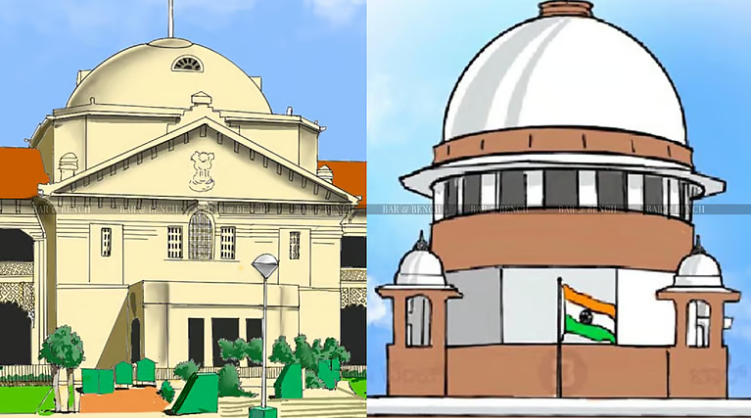Interestingly, a Supreme Court Bench of Justices Bela Trivedi and Prasanna B Varale had on March 24 declined to entertain a PIL filed against that Allahabad High Court order.

The Supreme Court has initiated a suo motu case to examine the controversial Allahabad High Court order which had held that acts of grabbing a child victim’s breasts, breaking the string of her pyjama and attempting to drag her beneath a culvert do not constitute the offence of rape or attempt to rape.
The suo motu case titled ‘In Re: Order dated 17.03.2025 passed by the High Court of Judicature at Allahabad in Criminal Revision No. 1449/2024 and Ancillary Issues’ will be heard by a Bench of Justices BR Gavai and Augustine George Masih.
Interestingly, a Supreme Court Bench of Justices Bela Trivedi and Prasanna B Varale had on March 24 declined to entertain a public interest litigation (PIL) petition filed against that Allahabad High Court order.
The Allahabad High Court had made the controversial observations on March 17 while modifying a summoning order.
The High Court had altered the charges against the two accused, who were originally summoned to stand trial under Section 376 IPC (Rape) and Section 18 (Punishment for attempt to commit an offence) of the Protection of Children from Sexual Offences (POCSO) Act.
The High Court instead directed that the accused be tried under the lesser charge of Section 354-B IPC (assault or use of criminal force with intent to disrobe), along with Sections 9/10 of the POCSO Act (aggravated sexual assault).
While doing so, Justice Ram Manohar Narayan Mishra observed,
“…the allegation against accused Pawan and Akash is that they grabbed the breasts of the victim and Akash tried to bring down lower garment of the victim and for that purpose they had broken string of her lower garments and tried to drag her beneath the culvert, but due to intervention of witnesses they left the victim and fled away from the place of incident. This fact is not sufficient to draw an inference that the accused persons had determined to commit rape on victim as apart from these facts no other act is attributed to them to further their alleged desire to commit rape on the victim.”
According to the prosecution, the accused, Pawan and Akash, allegedly grabbed the breasts of the 11-year-old victim. Thereafter, one of them broke the string of her pyjama and attempted to drag her beneath a culvert.
However, before they could proceed further, the intervention of passers-by forced them to flee, leaving the victim behind.
Finding it to be a case of attempted rape or attempted penetrative sexual assault under the POCSO Act, the trial court invoked Section 376 along with Section 18 of the POCSO Act and issued a summoning order under these provisions.
Challenging the summoning order, the accused persons approached the High Court, arguing that even if the complaint’s version is accepted at face value, no offence of rape was made out. They contended that the case, at most, fell within the scope of Sections 354 (assault with intent to outrage modesty of woman) and 354(B) IPC, along with relevant provisions of the POCSO Act.
On the other hand, the counsel for complainant argued that at the stage of framing charges, the trial court is not required to meticulously analyse or weigh the evidence collected during the investigation. Instead, it only needs to determine whether a prima facie case exists to proceed with the trial, it was contended.









